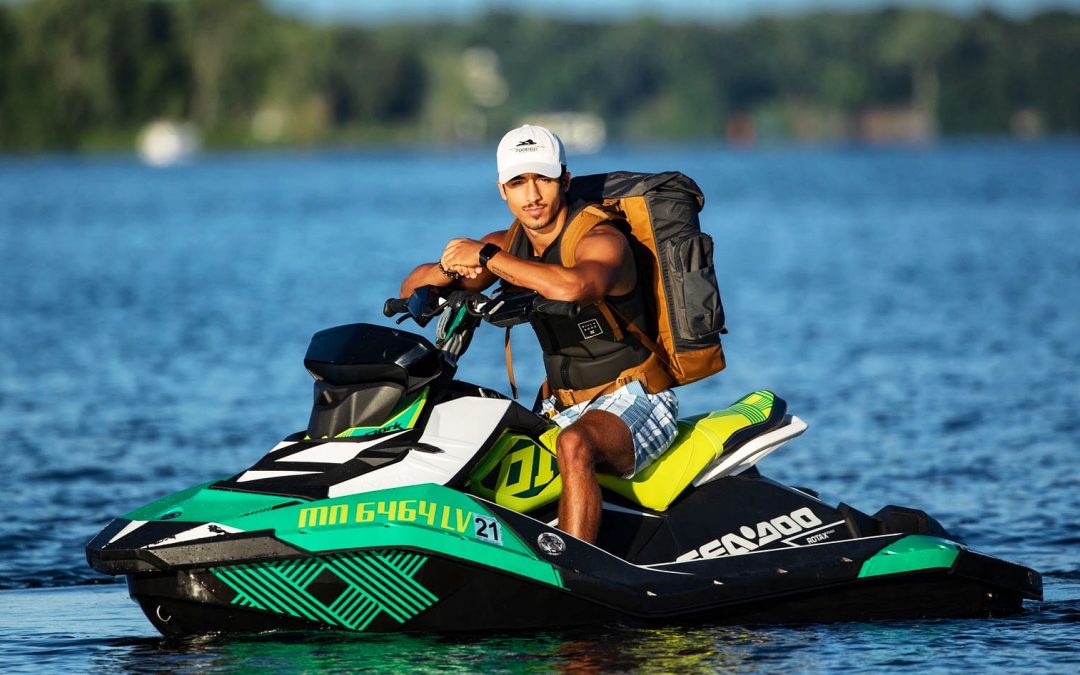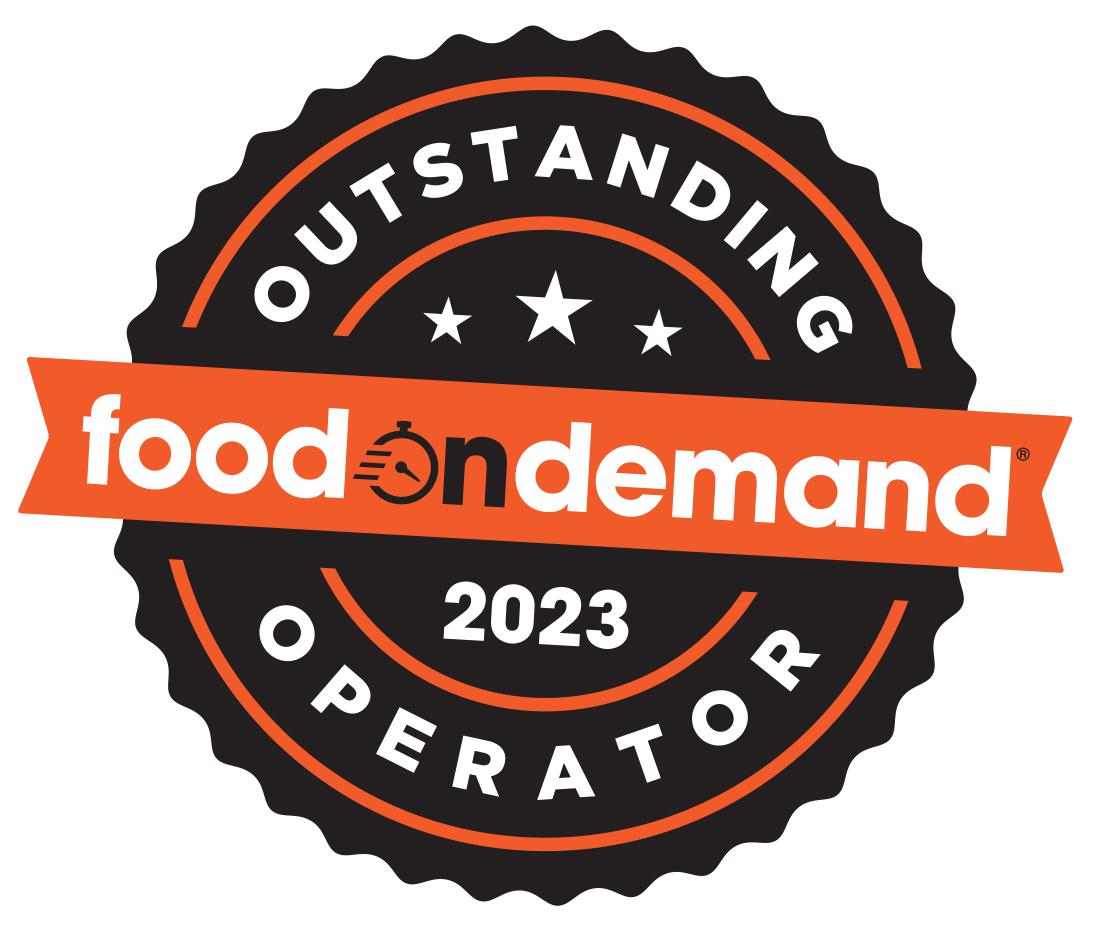Drones was the original idea for delivering meals to boaters on White Bear Lake in Minnesota’s Twin Cities, but “I thought that wouldn’t work with people who had a couple of drinks,” said Dylan Dierking, founder of Foodski, a jet ski delivery service, most likely “the drones would end up in the water.” A dingy with a motor was also rejected, “because the food would be bumping around too much and you can’t have the food spilling, especially from nicer restaurants,” the University of St. Thomas junior said.
And if you scaled up the business and were able to hire delivery drivers, as he plans to do, there isn’t a large pool of dingy owners. But he does own a green-and-black Sea-Doo jet ski, which became the third time’s charm.
Dierking delivers food from four restaurants on White Bear Lake, including the Meet Market and Admiral D’s, to boaters drifting lazily in the middle of the lake that’s 20 minutes north of St. Paul. The charge is 25 percent of orders over $40 and a $10 flat fee for orders under that dollar amount. The minimum order is $10.
An app is on the drawing board, but right now the system is a little cumbersome: Boaters call the restaurant, order and notify them Foodski will be picking up the order. The customer then contacts Dierking to let him know which restaurant to pick up from. “From there, I’ll either call them (the customer) or they can drop a pin and leave a description of their boat (via text),” he said. When he pulls up next to the boat, the customer pays in cash, or by credit card using a Square card reader on his phone. He can only deliver food and soft drinks, no alcohol.
Unlike traditional third-party services, Foodski’s service is free for restaurants. “All the restaurants need to know is that we exist and that we’ll come pick up the food,” he said.
“They don’t pay me, and I don’t get any money from them. It’s not a partnership.” But it is a service that provides sales restaurants wouldn’t normally get. On a typical nice-weather day, he does six to 11 deliveries, he said, but on a bigger, busier lake like Lake Minnetonka in the western Twin Cities, he believes he could quadruple business. The delivery time from pickup to boat is around five to six minutes, he said.
This is the first summer for the service and Dierking admits that he has a lot of work to do to turn it into a profitable business. The clever name—his mother’s idea—is in the process of being trademarked, and he has plans to expand the service to other sites next year. “I have a lot of work to do between now and next May,” he said. “I think an app will be necessary, (but) I wouldn’t make one if it doesn’t make sense to expand.” In addition he needs to invest in software to automate the process between drivers and orders, based on where they are in relationship to the boat and restaurant.
He’s been asked about franchising, but he’s savvy enough to know he’s not ready for that step.
People are also suggesting he considered making it a year-round business and delivering to icehouses on frozen lakes come winter. “I don’t have a snowmobile so that would be tricky,” he said, plus, “I don’t think it’s the same demographic, so I worry that there wouldn’t be the interest (especially since he can’t deliver alcohol).”
School also starts up again, where he’s a second semester junior in St. Thomas’ School of Entrepreneurship in St. Paul, cutting into his delivery time.
Business has somewhat interfered with pleasure. “I still enjoy my jet ski, but I don’t take it out for joy rides anymore,” he said.
This story originally appeared in our sister publication, Foodservice News.




